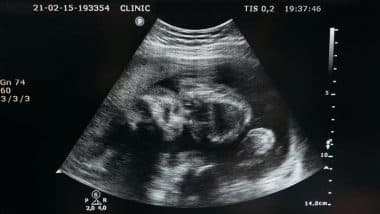The instant a sperm cell successfully merges with a human egg marks one of the most intricate and awe-inspiring moments in biology, the origin of a new life. Far from being a simple union, this event sets off a remarkable chain reaction inside the egg. Among these reactions is a recently uncovered and visually striking phenomenon known as the ‘zinc spark’. This is not just a poetic metaphor; it refers to a real, microscopic burst of zinc ions that the egg emits shortly after fertilisation. Detected with sophisticated imaging technologies, this luminous release is critical to the egg's transformation from a dormant cell into an embryo ready to begin life. Not only is the zinc spark light scientifically captivating but it also offers powerful new tools in the field of reproductive medicine, especially in evaluating egg health during procedures like IVF (in vitro fertilisation). In-Vitro Fertilisation: Childless Couples Can Have Better Success with IVF Thanks To ART.
What Is Zinc Spark?
When a sperm successfully merges with a human egg, it initiates a striking biological response called the ‘zinc spark’, a burst of light caused by the swift expulsion of zinc ions from the egg’s surface. Detected through advanced fluorescent imaging, this luminous reaction marks the egg’s shift into an active state, paving the way for early embryonic development. Interestingly, the brightness and frequency of these flashes are closely linked to the egg's health and developmental potential. This discovery offers exciting possibilities in assisted reproduction, particularly in IVF, where it may help identify the most promising eggs for implantation, ultimately enhancing success rates. Pregnancy Completely Rewires Mothers' Brains — Study.
Before fertilisation, the egg exists in a suspended state, having completed most of its development during ovulation. The sperm carrying half the genetic material needed to create a human, penetrates the egg’s outer layer using specialised enzymes. Once the sperm enters, it triggers a cascade of calcium waves within the egg, followed by the zinc spark. This chemical signaling transforms the egg from a static, single cell into one that begins dividing and organizing itself to form an embryo. The zinc stored in small compartments inside the egg, is released in pulsating bursts into the surrounding fluid, visually appearing like tiny flashes of light under a microscope.
A Burst Of Light- Zinc Spark
View this post on Instagram
The 'zinc spark' refers to a rapid release of zinc ions from a human egg immediately after it is fertilised by a sperm. It not only prevents additional sperm from entering the egg but also helps initiate the first stages of embryonic development. Often described by scientists as a biological light show, this phenomenon symbolises the very first spark of life.
(The above story first appeared on LatestLY on Apr 16, 2025 12:20 PM IST. For more news and updates on politics, world, sports, entertainment and lifestyle, log on to our website latestly.com).













 Quickly
Quickly




















